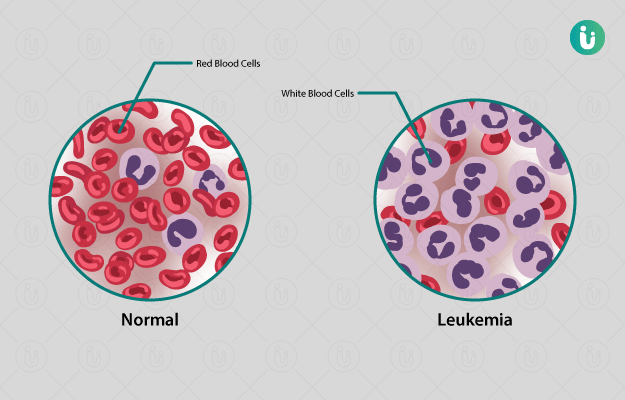What is Blood Cancer?
Blood cancer is a condition in which the normal functioning of the body is hampered (fighting against infections, homeostasis, or repair function) due to a disturbance in the development of the blood cells. This leads to a plethora of symptoms. The main types of blood cancer include myeloma, leukaemia, and lymphoma which occur from cancer affecting 3 different cells, namely platelets, white blood cells and lymphocytes, respectively.
What are its main signs and symptoms?
Although the signs and symptoms of blood cancer can vary, the commonly seen symptoms include
- Sudden and unexplained loss of weight
- Fatigue or extreme tiredness
- Excessive sweating, especially at night
- Recurrent infections
- Pain in the bone and/or joints
- Itchy skin, which easily bruises and/or bleeds
- Swelling or formation of lumps in the head, neck, groin, or stomach
What are its main causes?
Blood cancers are mainly caused by mutations or defects in DNA. The cause of the mutations is not known and is thought to be related to factors such as family history, age, sex, ethnicity, or other health-related conditions. It could also be associated with a history of exposure to certain chemicals or radiation.
How is it diagnosed and treated?
Usually, blood cancer is diagnosed accidentally when you get your blood checked for any other disease and by the physician when he/she advises the following tests based on the symptoms:
- Blood tests
- Peripheral blood film
- Full blood count (FBC)
- Infection screening/virology testing
- Urea and electrolytes
- Liver function tests
- Flow cytometry (immunophenotyping)
- Cytogenetic testing
- Bone marrow and lymph node biopsy
- Scans
- X-rays
- Ultrasound
- Computed tomography (CT)
- Magnetic resonance imaging (MRI)
The management of blood cancer involves treatment at different levels
- High-intensity Treatment – Strong drugs are used to kill or stop cancer cells from spreading. This includes
- High or standard dose chemotherapy (low dose is used in low-intensity treatment)
- Radiation or surgery
- Stem cell transplant
- Use of (can be used as low-intensity therapy as well)
- Monoclonal antibodies
- Biological therapy
- Immunotherapies

 Doctors for Blood Cancer
Doctors for Blood Cancer  OTC Medicines for Blood Cancer
OTC Medicines for Blood Cancer
 Blood Cancer articles
Blood Cancer articles

 Diet for Blood Cancer
Diet for Blood Cancer







 Editorial Team
Editorial Team











